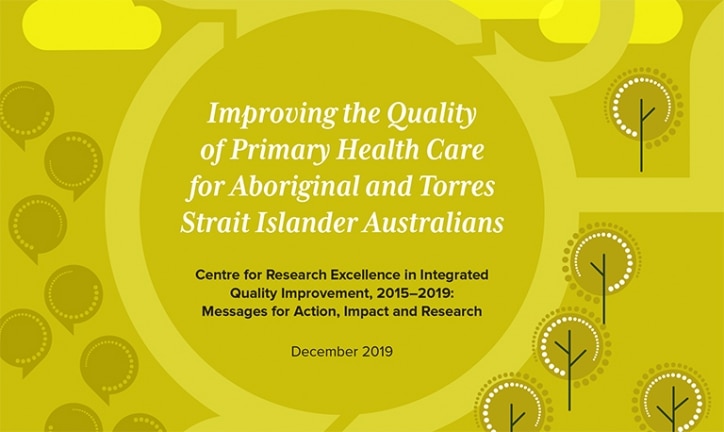
A two-decade long study into Aboriginal and Torres Strait Islander Health has resulted in a report and roadmap for quality improvements.

A new report, Improving the Quality of Primary Health Care (PHC) for Aboriginal and Torres Strait Islander Australians has been launched, and highlights the importance of a National Framework for Continuous Quality Improvement (CQI) .
The report was authored by the CRE-IQI (Centre of Research Excellence in Integrated Quality Improvement) – a network of service providers, communities, policy makers and researchers to strengthen the primary health care system through quality improvement.
A key finding was that Aboriginal and Torres Strait Islander (PHC) Services already widely accept and incorporate continuous quality improvement processes, with some resulting improvements in clinical care, service systems and the social determinants of health.
Teams need to be enabled through regional-level support and a whole-of-organisation approach supported by leadership at all levels, and with access to appropriate funding.
Leading the way in improving health is a well-prepared health service that is stable with a mix of skills and clear roles and responsibilities.
The report highlighted the importance of Aboriginal and Torres Strait Islander leadership as the key to improving health outcomes. Indigenous leadership improves engagement with communities and ensures the optimal method of delivering services.
The result of five years of research, this report demonstrates the power of collaboration with 47 different lead authors from 22 organisations.
HMRI Health Research Economics Shanthi Ramanathan and Professor Andrew Searles have been involved in the work of CRE-IQI and Dr Ramanathan is a co-author of the final report. She says that the work of CRE-IQI and its members shows the value of working with communities to include Indigenous perspectives on care quality. “It’s not just about whether these PHC services are being delivered as per best practice guidelines, it is also about “how” they are delivered that impacts on Indigenous communities. We need to listen and understand the communities’ perspectives so we can improve how we deliver services to optimise participation of Indigenous Australians. What does quality look like to them?”
Change is possible, but must incorporate the social determinants of health. To do this, there are evidence-based tools and processes that can help. In order to act, have impact and do further research, the team advocate the following:
For health services
For policy, government and support organisations
For researchers and service-policy-research collaborations
HMRI would like to acknowledge the Traditional Custodians of the land on which we work and live, the Awabakal and Worimi peoples, and pay our respects to Elders past and present. We recognise and respect their cultural heritage and beliefs and their continued connection to their land.

Hunter Medical Research Institute
We’re taking healthy further.
Locked Bag 1000
New Lambton
NSW, Australia, 2305



This site is protected by reCAPTCHA and the Google Privacy Policy and Terms of Service apply.
Copyright © 2024 Hunter Medical Research Institute | ABN: 27 081 436 919
Site by Marlin Communications
